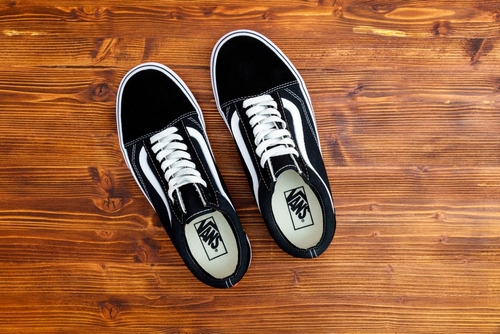Overview: A case pitting shoe company Vans against an artists’ collective shows how the Supreme Court’s recent Jack Daniels decision, regarding First Amendment and parody, will be used in deciding trademark disputes.
Shoe Showdown
In Vans Inc. v. MSCHF Product Studio Inc., filed in New York, Vans, a casual and sports shoemaker, alleged that MSCF Product Studio Inc, a Brooklyn-based art collective, infringed on the trademarked signature Vans skateboarding shoe. MSCHF developed a shoe called the “Wavy Baby” that they claim is a spoof on the Vans Inc. skateboarding shoe. The “Wavy Baby” shoe is a collaboration between rapper Tyga and MSCF and includes the trademark colors, configuration, and logos on the shoe–but is very, well, wavy.
The district court referred to the recent U.S. Supreme Court ruling in favor of Jack Daniels, discussed here by MMR Strategy Group, which held that the First Amendment does not protect a parody dog toy called Bad Spaniels from trademark infringement claims. Unlike the Jack Daniels case, where the maker of the dog toy originally included no disclaimer of affiliation between the product and Jack Daniel’s, MSCHF included an express disclaimer and a statement that “no other shoe embodies the dichotomies — niche and mass taste, functional and trendy, utilitarian and frivolous — as perfectly as the Old Skool.”
Disclaimer Does Not Stop Restraining Order
The district court awarded Vans a restraining order against MSCHF, and the appellate court upheld that decision. In those decisions, likelihood of confusion survey evidence was a factor. Another factor was how the shoes were rolled out, in a similar fashion to how Vans markets other collaborations. Vans has created limited-edition collaborations in the past with The North Face, Disney, and Stussy. The MSCHF design intentionally and admittedly mimics the Vans shoe, even though the shoe is not meant to be worn, and despite MSCHF issuing a disclaimer.
The First Amendment, Parody, Context, and Likelihood of Confusion
The First Amendment protects parody, but context is key. The Jack Daniels ruling provides more flexibility to brands that believe their trademarks are being infringed, as long as the context is right. The MSCHF “Wavy Baby” was not meant to be worn and was intended to be a parody, but the way the product was sold, and how consumers perceived the shoe, factored into the decision.
If you are involved in litigation that pits the First Amendment against trademark rights, contact MMR Strategy Group.
